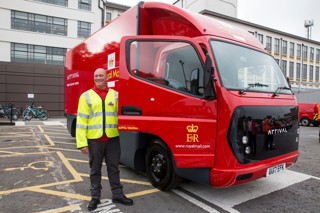The tsunami of piecemeal regulations heading towards commercial vehicle operators will be addressed head-on at Fleet Live.
Clean air zones, zero emission streets and London’s Direct Vision Standard are all on the immediate horizon, and will come into force before fleets have had a chance to renew their vehicles, due to the lengthy holding periods of commercial vehicles.
The implications of these issues will be an important focus of Fleet Live, where Rebecca Kite, environmental policy manager, Freight Transport Association, will outline the scale and speed of the challenges ahead and highlight potential solutions.
London’s ultra low emission zone, for example, comes into force in 2019 and will penalise all vehicles that do not meet Euro 6 emission standards with a £100 daily fine, yet even if fleets could terminate their current vehicle contracts early, the waiting times for some new Euro 6 trucks are now up to a year.
“If it’s three to four years ahead of when they were planning to upgrade their vehicles, then many fleets cannot afford it and there are not enough trucks available,” said Kite.
Oxford’s zero emission streets will not apply to HGVs until 2035, but there are already plans afoot in places like Hackney to bring in ultra low emission streets that would amount to a HGV ban, she added.
This issue is particularly acute because different cities are responsible for their own plans to improve local air quality, raising the prospect that a non-compliant vehicle could be fined several times per day for entering three or four different clean air zones.
With narrow margins in the freight sector, operators will not have the income to pay fines of up to £100 per day in each of these zones, but neither will it be easy to pass on the costs to customers in such a ferociously competitive industry.
The Direct Vision Standard creates another headache for fleets in London, with more than half of the 12-tonne plus vehicles affected failing to meet Transport for London’s minimum one-star rating for the standard of visibility from an HGV driver’s seat.
Vehicles that fail to meet this standard will be will be denied a safety permit to enter the capital from 2020, while only those vehicles rated 'three-star' and above, or which have comprehensive safety systems, will be able to operate in London from 2024.
“If you do not have a one star rating there is a safety permit scheme which looks at what mirrors you have, audible warnings, visual warnings and cameras,” said Kite. “If you have all those in place you should then be able to be compliant to enter the zone.”
This will demand the retro-fitting of safety devices in many instances – it’s unrealistic to expect truck manufacturers to create a range of compliant models merely to satisfy the rules of a single city.
Rebecca Kite will be speaking at Fleet Live on October 9.
MORE INFORMATION NEEDED?
We know the event is some way off yet, but if you have a question about it, please fill in the form below and a member of the events team will help.




















Login to comment
Comments
No comments have been made yet.